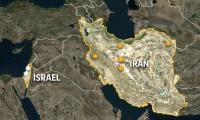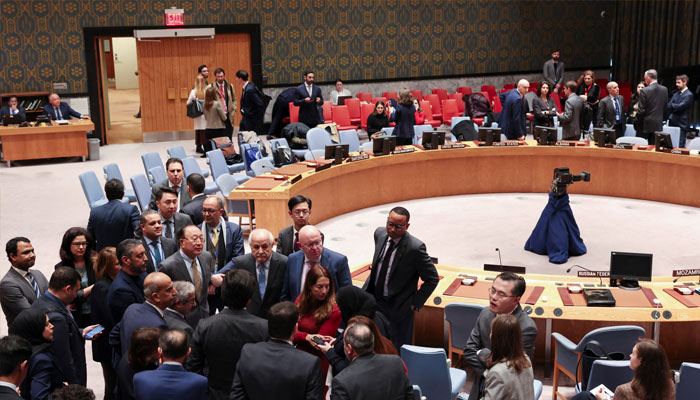Day of diplomats
International Day of Diplomats is celebrated every year on October 24
Countries observe the International Day of Diplomats on October 24 every year to recognise the significance of international diplomacy and tireless contributions of diplomats serving their national interests.
It is commonly believed that the mistreatment of Mongol ambassadors in the royal court of Khwarazm Shah had infuriated Genghis Khan so much that he destroyed the entire region to take revenge. Contrary to this, India, due to successful diplomacy by the Delhi Sultanate, remained safe from the wrath of the Mongols.
This historical fact proves that from ancient empires to 21st-century modern nation-states, international diplomacy has always played a pivotal role in every matter – whether it is the promotion of friendly relations or diplomatic isolation; resolution of mutual conflicts or border tensions; stabilisation of bilateral economic cooperation or imposition of economic sanctions.
Pakistan observes ‘Foreign Service Day’ on October 17. India, Russia and Brazil have declared October 9, February 10, and April 20, respectively, as national days to pay tribute to high-level services of diplomats in their respective native countries. Similarly, the tradition of celebrating the national day of diplomacy is found in different countries of the world.
The idea of dedicating a common day for international diplomats at the global level was presented by Indian diplomat Abhay K. In his article published in an English daily, he expressed his views that diplomats, no matter which country they belong to, dedicate themselves to the protection of their national interests on the territory of foreign countries. According to him, bloody wars that lead to the destruction of society start when diplomacy fails, and that a country with talented and capable diplomats never needs to go to war.
The idea of celebrating a common day for diplomats was so appealing that international diplomats marked the first International Day of Diplomats on October 24, 2017 in Brasilia, the capital of Brazil, with active participation of diplomats from Bangladesh, India, France, Ghana, Italy, Mexico, South Africa and Turkey. Similarly, diplomats from Brazil, France and the European Union (EU) also celebrated this day in Lome, the capital of Togo.
The day further received international recognition when the fourth annual Day of Diplomats was celebrated in the international city of Dubai. On the occasion, a large number of people including famous international personalities were also present to pay tribute to diplomats for resolving global conflicts, negotiating bilateral treaties, and protecting the rights of their citizens abroad.
Although I tried my best to find relevant information regarding the celebrations marking International Day of Diplomats at the state level in Pakistan, I could not find any significant material in this regard. Interestingly, this year’s Foreign Service of Pakistan Day came just a day after the conclusion of the annual meeting of the Shanghai Cooperation Organisation (SCO) in our federal capital. However, on behalf of the Foreign Office, just a two-line statement was posted on social media.
We must understand that professional responsibilities of international diplomats have changed a lot in today’s complex world scenario. In the era of globalisation, non-state actors, terrorism, climate change and cyber security concerns are not limited to a single country.
In my view, the skills of successful diplomacy that the world is trying to master today were already described hundreds of years ago by the great philosopher Kautilya Chanakya in his masterpiece books Arthashastra and Chanakyaniti. It is quite unfortunate that we do not learn from our brilliant past and do not try to make our future bright.
In honour of International Day of Diplomats that was observed yesterday, we should revise the stereotypical state policies of the past and adopt a realistic approach. To focus on successful international diplomacy, we must struggle tirelessly to establish cordial ties with all nations, especially the neighbouring countries, according to the vision of Quaid-e-Azam Muhammad Ali Jinnah.
The writer is a member of the National Assembly and patron-in-chief of the Pakistan Hindu Council. He tweets/posts @RVankwani
-
 Nvidia’s New Specialized Chip Aims To Accelerate AI Processing Speeds
Nvidia’s New Specialized Chip Aims To Accelerate AI Processing Speeds -
 Demi Moore Was Left With ‘intense’ Illness After ‘The Substance’
Demi Moore Was Left With ‘intense’ Illness After ‘The Substance’ -
 How AI Can Read Your Thoughts Without You Speaking?
How AI Can Read Your Thoughts Without You Speaking? -
 Elon Musk’s Grok Faces Scrutiny From Federal Agencies Amid Pentagon-Anthropic Standoff–Here’s Why
Elon Musk’s Grok Faces Scrutiny From Federal Agencies Amid Pentagon-Anthropic Standoff–Here’s Why -
 ‘I Saw Nothing’: Bill Clinton Denies Knowledge Of Epstein’s Crimes In House Testimony
‘I Saw Nothing’: Bill Clinton Denies Knowledge Of Epstein’s Crimes In House Testimony -
 Jim Carrey Makes Surprising Confession About Rarely Seen Girlfriend Min Ah
Jim Carrey Makes Surprising Confession About Rarely Seen Girlfriend Min Ah -
 How Michael J. Fox Helped Harrison Ford With His Parkinson's Monologue
How Michael J. Fox Helped Harrison Ford With His Parkinson's Monologue -
 AI Safety Battle: Anthropic Fires Back At Pentagon After US Military Flags It ‘supply Chain Risk’
AI Safety Battle: Anthropic Fires Back At Pentagon After US Military Flags It ‘supply Chain Risk’ -
 OKC Vs Nuggets: NBA MVP Shai Gilgeous-Alexander Scores 36 In Fiery Overtime Win
OKC Vs Nuggets: NBA MVP Shai Gilgeous-Alexander Scores 36 In Fiery Overtime Win -
 Eric Dane's Biggest Regret Comes To Light Following Days Of His Death
Eric Dane's Biggest Regret Comes To Light Following Days Of His Death -
 Israel Launches Attack On Iran's Capital And Declares State Of Emergency
Israel Launches Attack On Iran's Capital And Declares State Of Emergency -
 At Least 15 Dead After Military Plane Carrying New Banknotes Plunges Out Of Control In Bolivia
At Least 15 Dead After Military Plane Carrying New Banknotes Plunges Out Of Control In Bolivia -
 OpenAI Partners With Pentagon After Trump Bans Anthropic AI
OpenAI Partners With Pentagon After Trump Bans Anthropic AI -
 Trump Orders Federal Agencies To Stop Using Anthropic AI Tools
Trump Orders Federal Agencies To Stop Using Anthropic AI Tools -
 Shocking Details Emerge In Martin Short’s Daughter Katherine's Death Investigation: 'Kept To Herself'
Shocking Details Emerge In Martin Short’s Daughter Katherine's Death Investigation: 'Kept To Herself' -
 Daniel Serafini Gets Life Without Parole In In-laws Murder And Attempted Murder Case
Daniel Serafini Gets Life Without Parole In In-laws Murder And Attempted Murder Case




